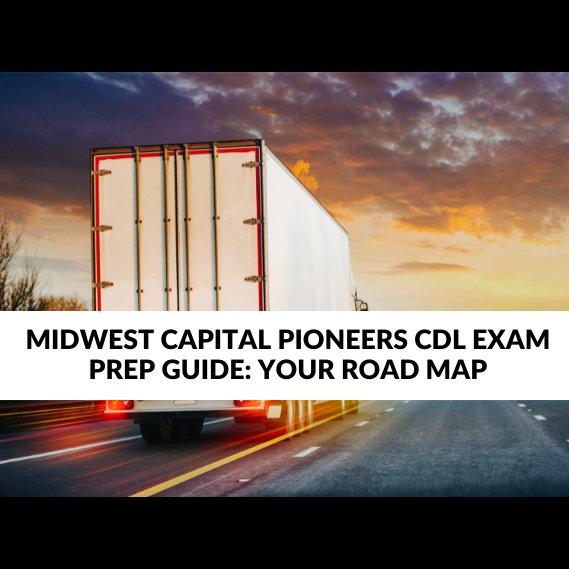Table of Content
Today’s fast-paced logistics world makes truck driver recruitment more critical than ever. Demand for qualified and reliable truck drivers has skyrocketed, making the recruitment process essential for trucking companies. Skilled driver recruitment is increasingly crucial, yet companies without resources or time to effectively recruit truck drivers cannot find them themselves; that is where truck driver recruitment agencies come in to make hiring easier – though finding appropriate candidates from this niche often remains challenging.
This guide will offer tips and strategies that will assist in recruiting truck drivers. If your logistics company requires trucking drivers, this blog should be read before selecting a company to work with.
Understanding Truck Driver Demand
Truck driving jobs have become the focal point for global logistics operations due to eCommerce’s expanding presence and an ever-increasing need for efficient transportation solutions. Industries increasingly rely on online operations, meaning trucking companies must focus on timely deliveries – prompting an uptick in driver jobs as industries turn towards online operations – reflecting market dynamics and acting as an indicator for the sector’s future trajectory.
Let’s examine what factors have led to an increase in truck driver recruitment companies:
- Key factor driving this shortage include the growth of online shopping, which has increased the volume of goods requiring transport, necessitating skilled CDL truck drivers to transport these items.
- Economic expansion across different sectors increases truck driving jobs in regions with significant industrial and commercial activities, leading to greater truck driver demand.
- Due to evolving supply chain strategies and demands for faster delivery times, truck driving has become an even more essential aspect of business logistics strategies.
These factors have elevated truck driver jobs from mere employment options to crucial roles in commerce and trade. Companies needing truck drivers must adapt quickly as market dynamics shift; therefore, understanding the nuances of recruiting a driver becomes critical – not simply filling a vacant post but aligning workforce planning strategies with business goals as a priority.
Importance of Truck Driver Recruitment Companies:
Streamlined Hiring Process: They specialize in connecting trucking companies with qualified drivers quickly and cost-effectively, saving time and resources spent recruiting drivers.
Expertise in Matching: Specializing in matching the right candidate with their job duties according to skillset and company needs for optimal outcomes.
Quality Assurance: Thorough background and skill checks should be conducted to ensure only experienced, trustworthy truck drivers are hired.
Industry Knowledge: An in-depth knowledge of trucking trends and needs is vital to recruiting truck drivers effectively.
Reduced Turnover: By finding well-suited matches, trucking companies can reduce driver turnover – an issue in the trucking industry.
Regulatory Compliance: To ensure all candidates meet legal and safety standards necessary for trucking companies.
Career Development: Help drivers find roles that suit their career goals for improved job satisfaction and performance.
Time and Cost-Efficient: Reduce company time and expense spent recruiting, interviewing, and training new drivers.
Recruitment companies play a vital role in the logistics and transportation industries, improving efficiency and quality in hiring processes.
The Truck Driver Recruitment Process
In the Truck Driver Recruitment process hiring qualified and reliable truck drivers is essential to maintaining efficiency and reliability within the logistics industry. This complex procedure necessitates an in-depth knowledge of both market needs and those specific to trucking companies to recruit drivers that successfully keep supply chains moving smoothly.
1. Assess Hiring Needs: As the first step of their recruitment strategy, trucking companies must assess their hiring needs. This could involve long-haul drivers and regional ones with various licenses and skills required – it’s vitally essential for targeted recruitment of these positions.
2. Sourcing Candidates: Trucking jobs often draw many applicants; finding the ideal truck driver requires advertising via various channels. Online job boards, industry fairs, and social media are practical tools for targeting prospective truck drivers.
3. Screening and Evaluation: Once candidates have been found, the next step should be a comprehensive screening process that includes reviewing driving records, CDL qualifications, background checks, and any necessary legal clearance checks. Truck driving companies must ensure that their drivers comply with legal and safety requirements before hiring them as employees.
4. Interview and Assessment: Once chosen candidates are shortlisted, interviews and practical assessments may be conducted to ascertain their skills, experience, and suitability for truck driving jobs.
5. Training and Onboarding: Once candidates are chosen, they undergo training that may include company protocols, safety procedures, and onboarding processes specific to trucking recruitment. A successful onboarding experience sets up drivers for long-term careers at the company.
6. Retention Strategies: Retaining talented drivers is just as essential to company operations as recruiting them, which is why companies employ retention strategies such as offering competitive salaries, benefits packages, and career development opportunities to keep drivers motivated while decreasing turnover rates.
7. Compliance With Legal and Regulatory Standards: Regulatory compliance is integral to recruiting truck drivers, primarily when recruiting on behalf of fleet companies. This means adhering to hours-of-service regulations as well as meeting vehicle safety standards.
This extensive recruitment process goes far beyond simply filling vacancies – it aims to build a sustainable workforce that can meet the dynamic demands of the trucking industry. Achieving this requires strategic planning, evaluation, and continuous development – three components that foster company growth and stability for drivers alike.
Qualifications and Requirements of Truck Drivers
Specific requirements, qualifications, and skills are necessary to become a truck driver. Truck driver recruitment typically focuses on these areas:
Age Requirements: Candidates applying for Over the Road must be at least 23. In some states, individuals can obtain their CDL A at 21, but it will only cover intrastate driving.
Educational Background: Beginning your journey of commercial driving requires first obtaining a Commercial Learner’s Permit (CLP), followed by obtaining your Commercial Driver’s License (CDL). Training should reflect job requirements as much as possible.
Skill Set and Attributes: Truck drivers require essential skills like time management, navigation skills, patience, physical endurance, and attention to detail to successfully deliver goods – crucial skills in their truck driving job.
Compliance and Adaptability: Understanding and adhering to transportation regulations and quickly adapting to ever-evolving road conditions and schedules are integral to truck driving jobs.
Safety and Responsibility: Employing best safety practices and handling cargo responsibly are integral skills sought when hiring truck drivers.
These requirements, forming the core of truck driver recruitment processes, ensure that drivers are adequately equipped to face the challenges associated with truck driving.
Strategies for Successful Truck Driver Recruitment
Truck driver recruitment has changed considerably, necessitating innovative strategies to attract and retain skilled truckers. To stay ahead of competitors in this highly competitive field of trucking jobs, companies must use traditional methods and newer digital approaches when recruiting truck drivers.
1. Utiiziing Digital Platforms for Broader Reach: Indeed has become an indispensable tool in recruiting truck drivers in this digital era, as trucking companies rely increasingly on it as an online job portal to post truck driver jobs and attract candidates more likely to fit the role. Its broad reach makes Indeed an ideal and targeted posting option that attracts candidates more likely to meet specific criteria for postings relating to truck driving jobs.
2. Social Media Engagement: Social media can be a beneficial asset when recruiting truck drivers. Platforms such as LinkedIn, Facebook, and Instagram provide ample opportunity to showcase company culture, post job openings, and engage with prospective candidates – effectively using these channels can significantly increase the visibility of job listings and boost their recruitment success rates.
3. Employee Referral Programs: Referrals from current employees can be an excellent source for recruiting truck drivers. Employees often have strong industry connections and can recommend reliable candidates; offering incentives to encourage successful referrals can further encourage employees to engage in this recruitment process.
4. Attending and Hosting Job Fairs: Traditional job fairs remain effective recruitment strategies for trucking companies. Participating in or hosting industry-specific job fairs allows trucking firms to meet potential candidates face-to-face, creating a more personal recruitment experience.
5. Partnership With Training Schools: Trucking recruitment companies may benefit from forming partnerships with CDL training schools as it opens up a pipeline of already certified drivers that can speed up the hiring process.
6. Competitive Compensation and Benefits: For businesses to attract top talent, providing competitive compensation and benefits packages such as salary, health benefits, retirement plans, and performance incentives is paramount.
7. Career Development Opportunities: Establishing clear career development paths and training opportunities is an invaluable way of attracting drivers seeking long-term employment. Furthermore, this strategy reduces turnover rates significantly.
8. Implement Data-Driven Recruitment Strategies: Using data-driven strategies can streamline your recruitment process. Utilizing past cycles’ information can assist with understanding which channels and methods work most effectively, enhancing future hiring processes.
9. Focus on Company Culture and Values: Fostering an engaging company culture with solid ideals can attract drivers who share these ideals, leading to higher job satisfaction and lengthier employee tenure.
By employing these strategies, trucking companies can successfully navigate the challenges associated with truck driver recruitment process. This involves balancing reaching out to potential candidates through various channels and offering compelling reasons why they should join and remain with the company.
The Role of Compensation and Benefits in Truck Driver Recruitment
Truck driver recruitment hinges upon offering attractive compensation packages. Walmart has long set an industry benchmark with its competitive truck driver salary; its pay scheme sets a standard that attracts and retains talented truckers. Offering attractive trucker pay is critical in recruiting skilled drivers, not just regarding basic salary alone but encompassing bonuses, overtime pay, and pay increments according to experience and performance.
Truck driver recruitment relies heavily on benefits. Trucking job perks for truck drivers, such as health insurance, retirement plans, paid time off, and flexible schedules, all help attract the best candidates while improving job satisfaction and loyalty to the company. These perks attract drivers and enhance job satisfaction and loyalty to your organization.
Compensating and benefit packages are essential components of truck driver recruitment. Companies use them as an invaluable means to set themselves apart in a highly competitive market and attract the best talent while building loyal, satisfied workers.
Training and Development for Truck drivers
Training and development play an essential part in the truck driver recruitment process for newcomers and maintaining professional development over time. CDL training is an indispensable first step toward entering this profession; quality truck driver training programs lay a roadmap toward successful careers covering everything from essential vehicle operation to advanced safety protocols.
But learning doesn’t stop there: ongoing development is crucial to career progression in trucking. Advanced training programs may include specialization of driving skills, new logistics technology, and enhanced safety standards to keep drivers ahead of the competition in a constantly morphing industry.
Career advancement opportunities are an integral component of professional driving careers. Truck drivers’ career paths may span managerial positions, training sessions, or providing specialty transport services. Providing clear pathways for advancement motivates and retains drivers within your company.
These development opportunities come in various forms, ranging from on-the-job training to formal education programs, often including leadership and skills training that prepares drivers for more significant roles within their industry. By investing in these programs, companies demonstrate their dedication to supporting the well-being and growth of their workforce – thus drawing more skilled individuals.
Training and development are indispensable in truck driver recruitment, contributing significantly to safety, efficiency, employee retention, and satisfaction. Drivers who feel supported in pursuing their career goals tend to stay with companies longer-term, thus decreasing turnover rates while creating an experienced and capable workforce – essential elements in successfully competing in today’s trucking world.
Retention Strategies in Truck Driver Recruitment
Truck driver retention is vital for trucking companies’ efficiency and sustainability, affecting operational consistency and associated costs due to frequent hiring. Retaining skilled drivers guarantees operational continuity and can reduce hiring costs associated with regular replacement.
Promoting a Positive Workplace Culture
Cultivating an ideal trucking company culture is critical to driver retention. It is important to create an atmosphere of respect, open communication, and teamwork – factors that significantly contribute to driver satisfaction and loyalty.
Importance of Work-Life Balance
Maintaining an ideal work-life balance in trucking is essential to driver well-being, so companies should aim for flexible scheduling and reasonable driving hours as crucial components of job satisfaction during recruitment processes for new truck drivers.
Open Communication and Feedback
Establishing open lines of communication and providing regular feedback allows drivers to feel valued and heard, which is pivotal in creating a sense of community that facilitates retention.
Competitive Compensation and Benefits
Truck driver recruitment necessitates competitive compensation and comprehensive benefits packages as a must. These incentives should cover salary, health insurance, and retirement plans, pivotal in keeping drivers.
Career Advancement Opportunities
Truck drivers need opportunities for career advancement to stay motivated. Clear career pathways, additional training programs, and role diversification should all play a part in any recruitment strategy for truck drivers.
Prioritizing Driver Health and Wellness
Prioritizing driver health and wellness is paramount. Initiatives focused on physical and mental well-being can significantly increase driver quality of life and job satisfaction.
By implementing these strategies, companies can dramatically enhance truck driver retention – an essential aspect of recruitment and selection processes. A supportive, rewarding, and balanced work environment benefits drivers and contributes to overall industry success and stability.
5 Tips for Companies Looking for Truck Driver Recruitment Companies
If your company is looking for truck drivers and don’t have the resources or expertise to hire then you will look for truck driver recruitment agencies. But the problem is there are so many of them, so here are some tips that will help you in choosing the best trucking company for your recruitment needs:
- Research and Reputation: Conduct preliminary research on potential recruiters by searching for recruitment companies. When considering recruiting companies, look for those with an established presence in the trucking industry, as evidenced by positive testimonials and successful truck driver placements. A reputable recruitment firm should understand all the nuances of recruiting skilled drivers and your specific business requirements.
- Specialization and Expertise: Choose a recruitment firm with extensive expertise in truck driving jobs. Their experts in this area will have an in-depth knowledge of the required skills, qualifications, and networks of potential candidates you’d need for the position.
- Recruitment Strategy and Approach: Evaluate their recruitment strategies. A top recruitment trucking company should utilize innovative techniques like digital platforms for truck driver recruitment alongside more conventional approaches.
- Compliance and Legal Knowledge: Ensure they understand all legal facets of hiring, such as CDL requirements and regulatory compliance issues. This knowledge will allow them to avoid legal risks while upholding driver safety standards.
- Support and Communication: Evaluate their level of support and communication. A recruitment company that can offer consistent assistance while keeping open lines of communication is invaluable – they should become partners in your recruitment process by providing regular updates and feedback.
Companies can benefit significantly by following these tips in finding a recruitment partner who understands their needs and helps enhance the efficiency and success of their truck driver recruitment process.
Legal and Regulatory Considerations in Truck Driver Recruitment
Legal compliance is at the core of truck driver recruitment. Adherence to trucking industry regulations and driver safety laws not only represents legal requirements but is also an obligation to both the driver and the public. These regulations cover everything from working hours to vehicle maintenance standards.
Regulations have an enormous effect on recruitment practices. Compliance with DOT is critical in this industry and can have severe ramifications for hiring practices and ongoing driver management. One of the most significant legal challenges of trucking industry operations is keeping up with evolving regulations while ensuring all drivers meet required standards; noncompliance may have serious legal repercussions and damage an organization’s reputation.
Therefore, trucking companies must understand and apply all relevant regulations to their recruitment and operational strategies to create a compliant workforce with efficient operations.
Midwest Capital Role in Truck Driver Recruitment
Due to its central position within US transportation infrastructure, the Midwest plays an integral part in recruiting truck drivers. Serving as an epicenter of commercial activity and providing access to trucking companies and those looking for driving jobs, this region of America offers unique advantages when recruiting drivers.
Midwest Capital capitalizes on this advantageous infrastructure by connecting drivers with suitable transport jobs through our extensive network and expertise. We successfully match drivers with ideal job opportunities. Our role goes well beyond mere recruitment; we make significant contributions to the industry by offering CDL training and ensuring compliance with trucking industry regulations. This comprehensive approach emphasizes the Midwest’s key role in maintaining its trucking workforce.
FAQs
What technological advancements are shaping truck driver recruitment?
Digital tools have revolutionized truck driver recruitment. Artificial Intelligence-enhanced candidate selection tools improve the selection process, while online platforms like Indeed provide access to more job postings, such as those for truck driving roles.
Can individuals without prior trucking experience enter the industry?
Individuals without experience can enter trucking through CDL training programs and apprenticeships offered by trucking companies, providing them with all the skills needed for entry-level trucking work.
How do trucking companies ensure driver safety and compliance?
Trucking companies provide safety and compliance through regular training sessions, adhering to industry regulations, and prioritizing driver safety laws.
How are trucking companies providing drivers with work/life balance solutions?
Companies offer flexible schedules and more home time options to maintain a healthy work-life balance in trucking.
Does long-haul truck driving differ significantly from local truck driving jobs in terms of recruitment challenges?
Long-haul jobs require drivers with experience traveling long distances, while local jobs require regional knowledge.
What trends are shaping the future of truck driver recruitment?
Current trends include increasing technology usage for recruitment purposes and adhering to evolving trucking industry regulations.
Conclusion:
Truck driver recruitment can be an intricate, multifaceted journey that integrates CDL training, company culture, and driver safety laws into its journey. This guide has provided insights into essential qualifications, innovative recruitment strategies, and compensation and benefits packages in today’s trucking industry. Training, development, and retention strategies play an integral part in meeting legal compliance issues related to DOT compliance; their implementation ensures companies maintain skilled driver workforces, which help keep transportation networks resilient and efficient.









